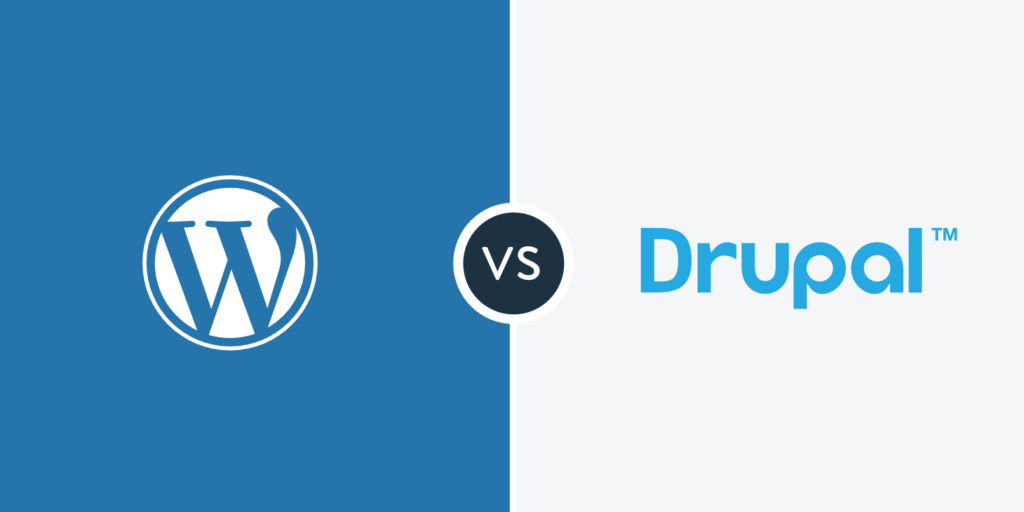At 360Ground, we often receive questions from government agencies and enterprises in Addis Ababa and across Ethiopia about which Content Management System (CMS) is best suited for developing robust and scalable government web portals. The two platforms that frequently come up in these discussions are WordPress and Django. In this blog, we aim to provide a comprehensive comparison to help you decide which CMS is best for your government portal project.

Why CMS Choice Matters for Government Web Portals
Government web portals handle large volumes of sensitive data and must accommodate users from various backgrounds and locations. Therefore, security, scalability, user-friendliness, and multilingual capabilities are key factors in selecting the right CMS. Government institutions in Ethiopia, particularly in Addis Ababa, require platforms that can manage high traffic, ensure data protection, and provide a smooth user experience.
WordPress Overview
WordPress is one of the most popular CMS platforms worldwide, known for its flexibility and ease of use. It powers millions of websites, including small businesses and government portals.
Key Advantages:
- Ease of Use: WordPress is very user-friendly, allowing non-technical users to manage content with minimal training.
- Multilingual Support: With plugins like WPML, WordPress makes it easy to manage multiple languages, which is crucial for reaching Ethiopia’s diverse linguistic groups.
- No-Code Customization: Visual builders like Elementor enable government institutions to quickly create or update pages without needing a developer.
- Large Plugin Ecosystem: Thousands of plugins are available to extend the platform’s functionality, making it easier to integrate with third-party systems.
Limitations:
- Security: While WordPress is secure when properly configured, it is often targeted by hackers due to its widespread use. You must invest in security plugins and regular updates to mitigate risks.
- Scalability: WordPress handles moderate content volumes well, but larger government sites may need additional performance optimization and managed hosting to scale effectively.
Django Overview
Django is a high-level Python-based web framework that is often favored by developers building complex, high-traffic applications. It is particularly suitable for government portals requiring custom features and robust security.
Key Advantages:
- Security: Django follows a “secure by default” philosophy. It offers built-in security features such as SQL injection protection, Cross-Site Request Forgery (CSRF) protection, and user authentication, making it ideal for government websites that handle sensitive data.
- Customization: Django allows for complete control over the functionality and design of the website, which is perfect for creating custom workflows and unique portal features for large-scale government projects.
- Scalability: Django is designed to handle large traffic volumes and heavy content loads, making it an excellent choice for national or regional government portals.
Limitations:
- Learning Curve: Django requires experienced developers, which can make it challenging for government staff who are less technically inclined. Content management can be complex without a dedicated development team.
- Longer Development Time: Due to its custom nature, Django projects tend to take longer to develop compared to WordPress, especially if the portal requires unique features or integration with other systems.
Key Factors for Government Portals in Ethiopia
When comparing these two platforms for government web portals, particularly in the Ethiopian context, there are a few key considerations:
Multilingual Support
In Ethiopia, a multilingual portal is essential to cater to the country’s diverse population. While both platforms support multiple languages, WordPress offers easier setup through plugins, making it a faster choice for multilingual government sites.
-
Brand Identity
Government portals often require a unique look that aligns with national branding. WordPress provides ready-made themes that can be customized quickly, while Django offers complete control but requires more development time to achieve the same result.
Security
For government agencies handling sensitive data, security is paramount. Django offers robust, built-in security features without relying on third-party plugins, making it a more secure option overall compared to WordPress.
Scalability
As the digital landscape in Ethiopia grows, government portals need to handle increasing traffic and content volumes. While WordPress can manage medium-scale projects with optimization, Django is built for large-scale government solutions from the ground up.
360Ground’s Recommendation
Based on the unique needs of government web portals in Ethiopia, we recommend choosing the CMS based on the following factors:
For smaller to medium-sized government portals: WordPress is ideal due to its ease of use, quick deployment, and extensive plugin ecosystem. It’s also more cost-effective for projects with limited budgets.
For large-scale, highly customized government projects: Django is the superior choice due to its high level of security, scalability, and customization capabilities. However, it requires more development time and technical expertise, which should be considered in the planning phase.
Frequently Asked Questions from Our Clients
At 360Ground, many of our clients frequently ask, “Which CMS is best for our government web portal project?” The answer depends on the specific requirements of the project, such as the portal’s size, security needs, and expected traffic. Both WordPress and Django are excellent platforms, but they cater to different needs. Our team is here to help you make the best decision based on your unique objectives.